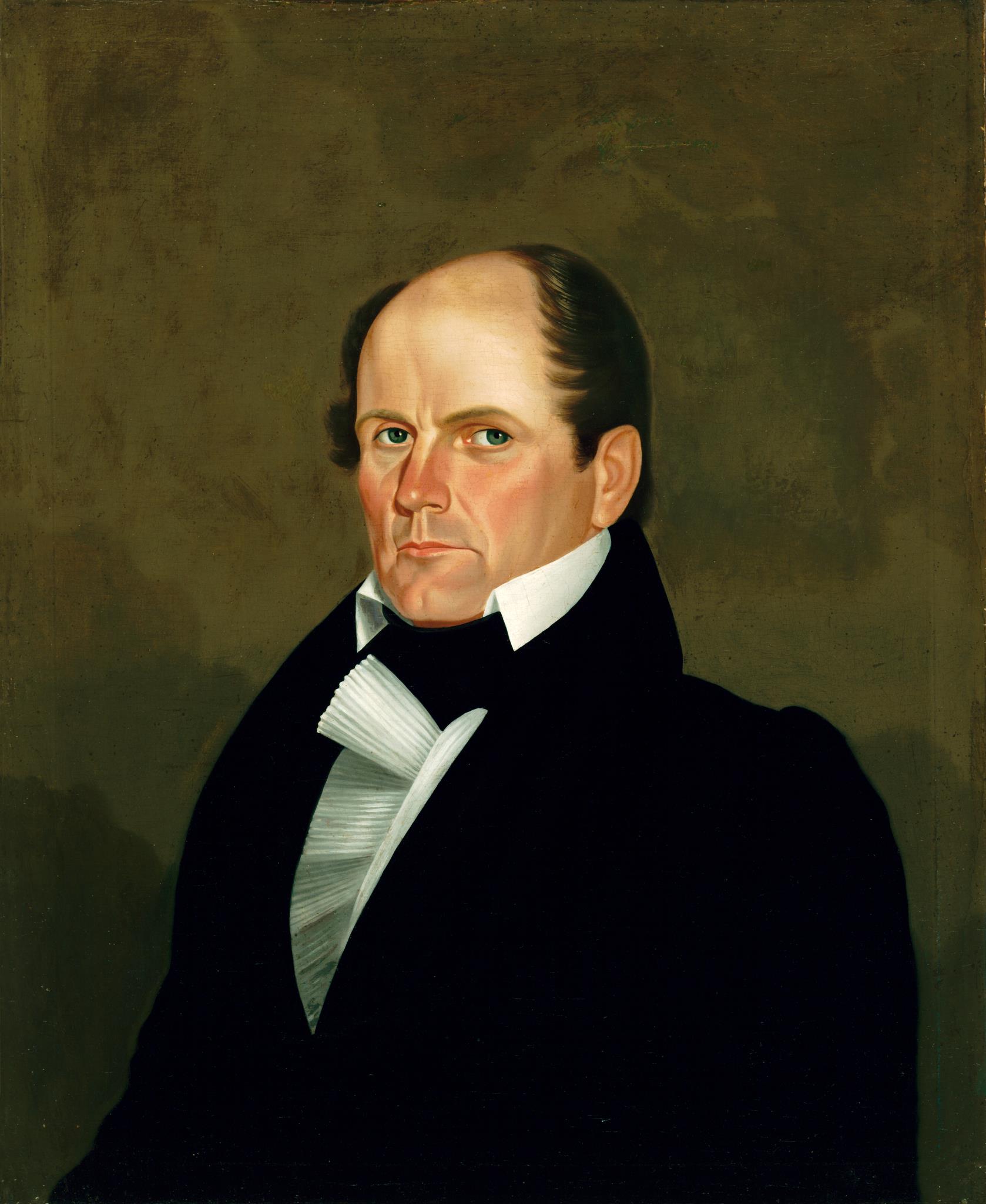CPL Locations 1901-2022
1899-1901 O’Rear Building*
NW corner of 10th & Broadway
(first Columbia library managed by the Tuesday Club)
1901-1908
Downtown Columbia
The library moved several times during this period. Locations included the following. Not all dates and locations are confirmed.
1901 Normal Academy
SE corner of 10th & Cherry
1901-1903 Whittle Building
911A E. Broadway
Unknown Haden Building
NE corner of 9th & Broadway
Unknown Gordon Building
Unknown
1908 Stephens Endowment Building
10 E. 10th St.
1909-1919 Old Boone County Courthouse Jury Room
705 E. Walnut
1919-1933 Guitar Building*
28 N. 8th St.
1933-1938 Municipal Building*
600 E. Broadway
1938-1970 Gentry Building*
1 S. 7th St.
1970-2000 100 W. Broadway
(first location built to be a library)
2000-2002 101 Park de Ville*
(during building reconstruction)
2002-Present 100 W. Broadway*
(second custom-built library)
* Building still stands, at least in part

by George Caleb Bingham, 1834
In 1845, Dr. Anthony Rollins willed $10,000 ($168,000 in today’s dollars) and a set of Reese’s Encyclopedias to the city trustees so they could establish a library. He asked that the library be named the Columbia and Rollins Library. However, the city trustees declined his bequest and the donation was put into a trust. Thirteen years later, Dr. Rollins’s request was finally accepted and the first Columbia Library Association was formed in 1859. The library was never established, however, and the reasons are lost to us.
A group of forward-thinking young men took up the library mantle in 1866, and started a new Columbia Library Association. With $1,000 worth of books ($33,000 in today’s dollars) and $1,500 in funds ($53,000 in today’s dollars), they created the first library open to the community in Columbia. In 1872, financial difficulties forced the association to house the collection in its members’ homes. Due to further financial difficulties and lack of public support, the association decided to donate the library’s small collection of 809 volumes to the University of Missouri’s library. Sadly, the books burned in the 1892 fire that destroyed MU’s Academic Hall.
A few years later, in 1899, a group of women established the Columbia Free Library and turned it over to the Tuesday Club (a chapter of the Federation of Women’s Clubs) that same year. The women’s philanthropic group operated the library until 1919. Since available funds fluctuated, the group had to relocate the library several times.
The Tuesday Club campaigned in 1917 to get a half-mill property tax passed to fund a Carnegie library† in Columbia. It failed by a small margin. In 1919, the library moved to the Guitar Building, and the Tuesday Club turned over the Columbia Free Library to the Community Council, a group of 48 Columbia clubs. For two years, the library was supported by the Community Council and a small appropriation from the city council.
In the 1920s, the Tuesday Club continued seeking public funding to support the library and worked tirelessly to get a tax levy on the ballot again. After women earned the right to vote, the half-mill tax to support a public library passed by 643 votes on April 4, 1922. This tax raised $5,000 ($80,579 in today’s dollars) annually to run the library, which by this time saw 30,000 visits a year.
Since its beginning in 1922, the library has faced many challenges, but continues to thrive despite national economic downturns, war and health crises. Along the way, the library’s mission of connecting our communities to the world of information and ideas remains constant, and we continue to benefit from the same strong community support as did the library’s founders.
Note of thanks: Library staff members Tim Dollens, Paige Lubbering, Nina Sappington and Katie Ziegler have spent countless hours researching the library’s history in newspaper articles, library board minutes and other resources. We thank them for all their hard work!
† At the turn of the 20th century, businessman and philanthropist Andrew Carnegie granted communities funds to build public libraries if they could raise the money to support and operate them. The 1912 section of the Callaway County Public Library is a Carnegie library.
